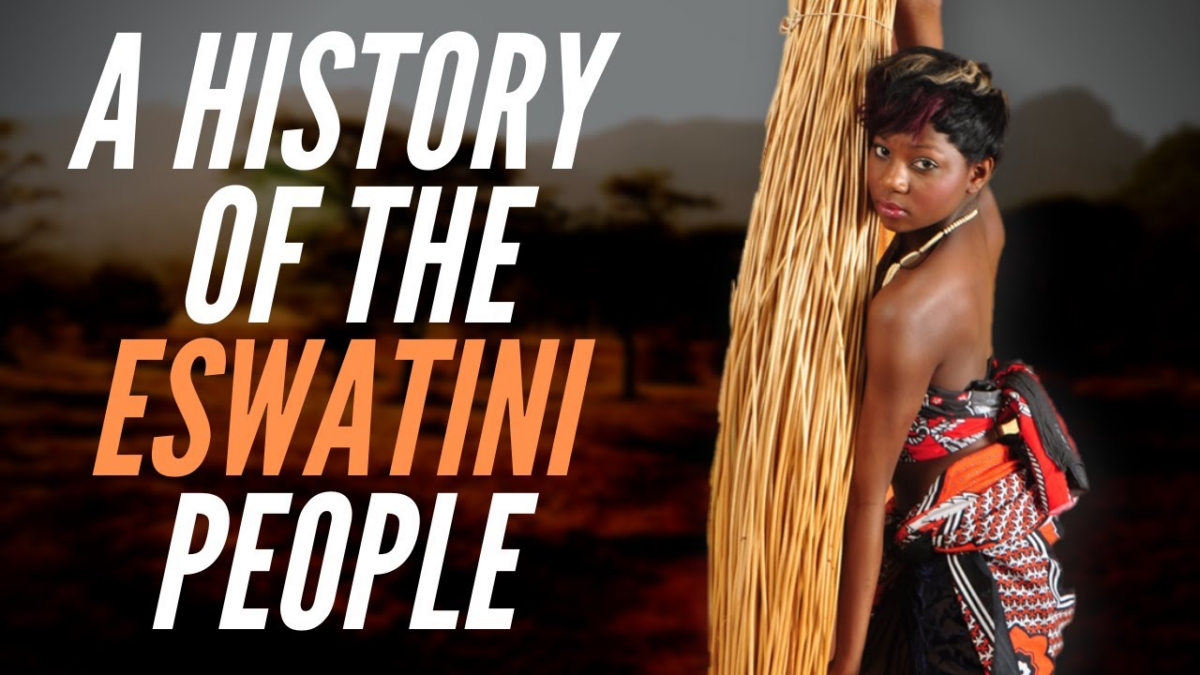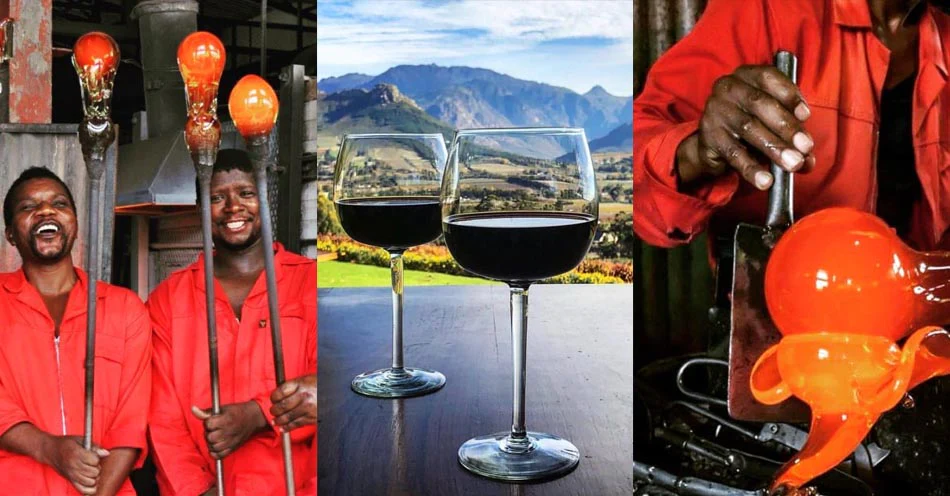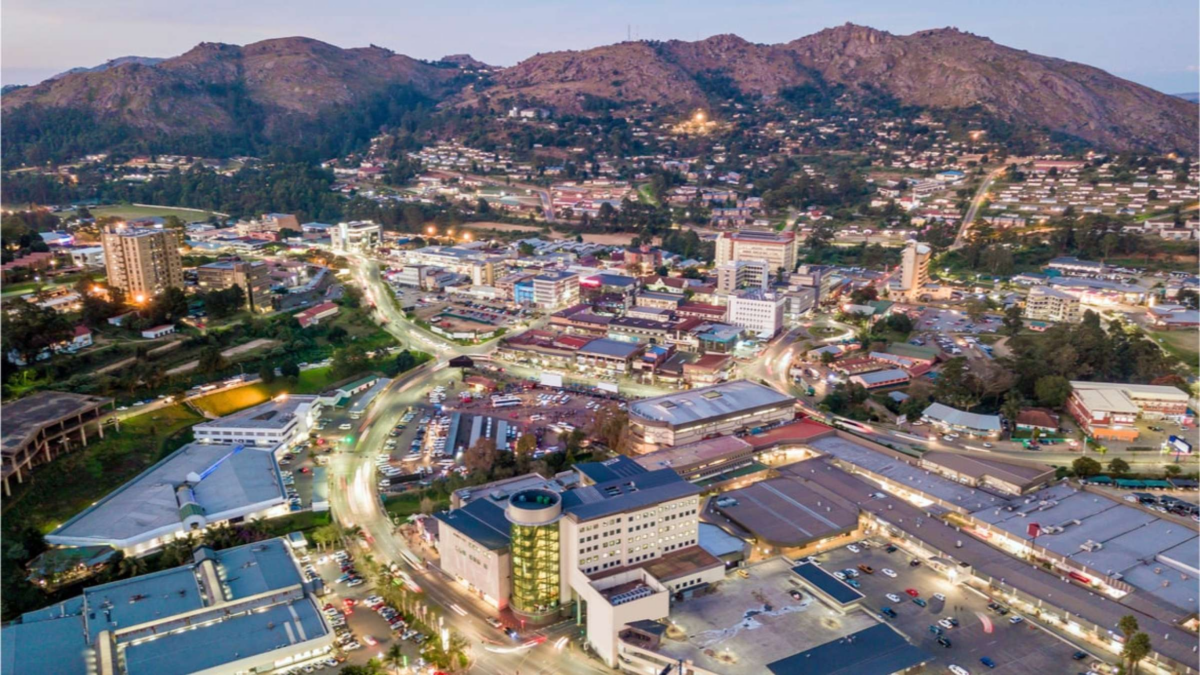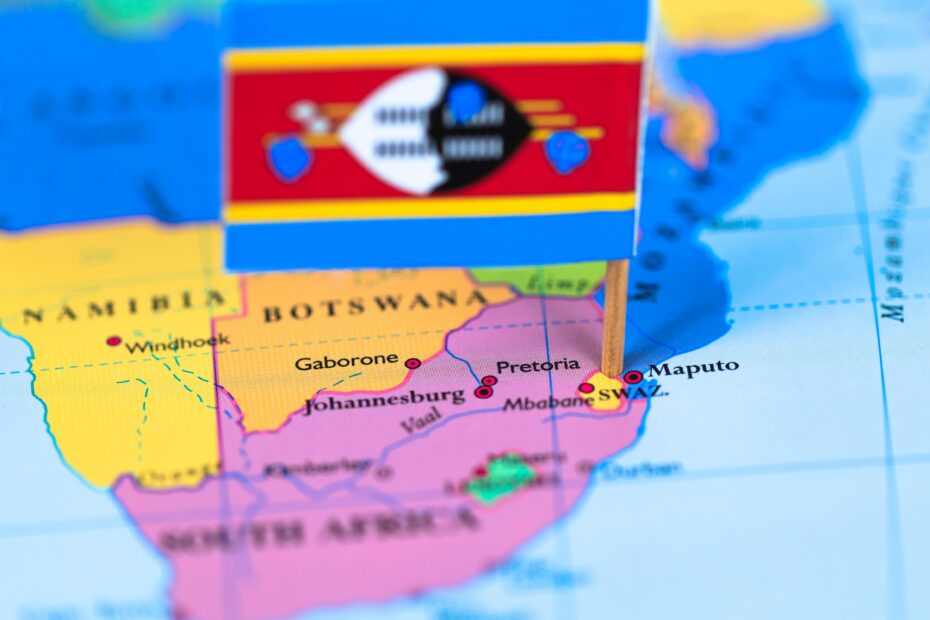Located in the southeastern region of Africa, Eswatini, formerly known as Swaziland, is a country that captivates with its rich cultural heritage, breathtaking landscapes, and warm hospitality. Let’s explore the diversity of this remarkable nation.
Geography and Climate
Eswatini is an immensely beautiful, landlocked country located in Southern Africa. South Africa borders it to the west and Mozambique to the east. Spanning 200 km north to south and 130 km east to west, it’s one of the smallest countries in Africa. However, its small size does not compromise its geographical diversity.
Eswatini showcases a diverse landscape, encompassing towering mountains in the west and sprawling savannas in the east. The country’s geographical wonders span from undulating hills and fertile valleys to the majestic summits of the Drakensberg Mountains. Read Also: 9 African countries you can visit on a tight budget
The climate of Eswatini varies with altitude. The Highveld region in the west experiences a temperate climate with cool, wet winters and warm, dry summers. The Middleveld and Lowveld, as you move eastward, become progressively hotter and drier. The country enjoys a relatively high average annual temperature, with variations largely dependent on altitude and location. Eswatini’s rainy season typically runs from October to April, bringing much-needed rain to this primarily agrarian society.

History of Eswatini
The rich history of Eswatini can be traced back to the early Stone Age, with archaeological evidence suggesting habitation by prehistoric humans. The Nguni people, ancestors of the Swazi, migrated to the region in the 15th century, drawn by the fertile land and abundant game. The Swazi people established themselves under the rule of King Ngwane III in the early 19th century, marking the beginning of the Kingdom of Eswatini.
The late 19th century saw Eswatini become a British Protectorate, introducing significant changes in the political and economic landscape. Eswatini gained independence from Britain on September 6, 1968, and King Sobhuza II, who had been crowned in 1921, became the first King of independent Eswatini.
In 1986, King Mswati III ascended to the throne and remains the country’s monarch to this day. In 2018, the King announced the change of the country’s English name from Swaziland to Eswatini. This meaning, “land of the Swazis,” reflects the Swazi people’s pride in their history and nationhood. Read Also: 8 African Countries at the Forefront of Climate Awareness
Culture and Traditions
Eswatini’s culture is deeply rooted in the Swazi people’s traditions, manifesting in their arts, social practices, and rituals. Traditional practices and rituals are an integral part of daily life, celebrated through colorful ceremonies, dance, and music. Central to the Swazi culture is the practice of respect or “kukhonta,” a system of tribute paid to the King and chiefs in return for the use of communal land.
Among the most vibrant displays of Swazi culture are their traditional dances and ceremonies. The annual Umhlanga or Reed Dance is a significant event where thousands of maidens gather to participate in a dance and present reeds to the Queen Mother as a symbol of their purity. Similarly, the Incwala ceremony, often known as the Kingship Dance, is a sacred and age-old ritual signaling the start of the harvest season.
Swazi art is another reflection of their rich cultural heritage, with handcrafts such as beadwork, weaving, and carving demonstrating their artisanal skills. Beaded jewelry and attire, often adorned during ceremonies, carry significant symbolic meanings related to status, age, and marital status.
Lastly, Eswatini society is patriarchal, with men traditionally considered the head of the household. Extended families, including several generations, typically live together or nearby, demonstrating the importance of familial ties in Swazi culture.

Food and Cuisine
Similar to other African nations, Eswatini boasts a distinctive culinary heritage that seamlessly fuses African traditions with a hint of British colonial influence. The staple food of the Swazi people is maize, which is often ground into mealie-meal and used to prepare dishes like “sitfubi,” a thick porridge served with beans or meat, and “sitshwala,” a stiff porridge best served with stew or gravy. Meat, especially beef and goat, is a significant part of the Swazi diet and is typically cooked in a variety of ways, including roasting, boiling, and grilling.
“Emasi etinkhobe temmbila,” a dish made with corn and sour milk, is another traditional favorite. Swazis also enjoy “emasi emabele,” which combines sour milk with ground sorghum. Fresh fruits and vegetables are abundant, with avocados, bananas, papayas, and mangoes commonly incorporated into meals.
On the sweet side, “ligwinya,” a type of doughnut, is a popular snack. Drinks include the traditional “buganu,” a fermented brew made from marula fruit. The influence of British colonization is apparent in the popularity of tea, often enjoyed with bread and jam for breakfast. Despite modern influences, the basis of Eswatini’s cuisine remains deeply rooted in its agricultural past, reflecting the nation’s respect for land and tradition.

Tourist Attractions
Eswatini, though small in size, is rich in tourist attractions that highlight the country’s natural beauty and cultural heritage. The Hlane Royal National Park is a must-visit, offering a chance to see a variety of wildlife, including elephants, lions, and a variety of bird species. For adventure enthusiasts, Mlilwane Wildlife Sanctuary offers opportunities for hiking, horseback riding, and mountain biking.
Eswatini also hosts cultural attractions like the Mantenga Cultural Village, a living museum that offers insights into traditional Swazi lifestyle and customs. The annual Umhlanga or Reed Dance is an incredible spectacle, attracting tourists from around the world to witness thousands of Swazi maidens performing a traditional dance for the Queen Mother.
In the capital city of Mbabane, you’ll find the Swazi Market, a bustling marketplace offering an array of local crafts, including intricate beadwork, handwoven baskets, batiks, and Swazi candles. Visitors can take the scenic drive through the Ezulwini Valley, dubbed ‘Heaven’s Valley,’ which lines with luxury hotels, hot springs, casinos, and the Royal Swazi Golf Course for a change of scenery.
Visiting the Ngwenya Glass Factory is an essential part of any journey to Eswatini, where artisans create beautiful pieces of glass from recycled glass. Additionally, a trip to the Swazi Candles Craft Market, where colorful handcrafted candles are being made, is a must. From wildlife spotting to cultural immersion, Eswatini presents a diverse palette of experiences for every traveler.
Economy and Industries
Eswatini’s economy is diverse, with agriculture, manufacturing, and service sectors contributing significantly to the country’s GDP. Small-scale farming dominates the agricultural sector, producing maize, sugar cane, and citrus fruits primarily. The nation is one of Africa’s largest sugar producers, with sugar exports playing a crucial role in the economy.
The manufacturing sector includes textile and apparel industries that export products to the US under the African Growth and Opportunity Act (AGOA). Beverage production, timber processing, and the handcraft sector, known for their innovative use of local resources in creating unique products like Swazi candles and Ngwenya glass, constitute other important industries.
The service sector, boosted by tourism, has seen considerable growth in recent years. The country’s rich biodiversity, cultural heritage, and political stability attract tourists from around the world. The government actively promotes tourism as a vehicle for economic development and employment creation.
Despite these economic activities, Eswatini faces challenges such as a high unemployment rate and dependence on South Africa, which receives about 85% of Eswatini’s exports. Efforts are ongoing to diversify the economy and increase domestic production.

Addressing Misconceptions
There exist several misconceptions about Eswatini, which often cloud the understanding and appreciation of this unique nation. Here,, we aim to address some of these false impressions:
- Eswatini is a war-torn country: Contrary to this belief, Eswatini is a peaceful nation and has never been involved in any major conflicts. The country has a stable political environment, and its people are known for their warm hospitality.
- Eswatini is economically underdeveloped: While Eswatini is a developing country, it boasts a diverse range of industries,, including agriculture, manufacturing, and tourism which significantly contribute to its economy.
- The country lacks modern amenities: Eswatini is modernizing rapidly. Its capital, Mbabane, and other prominent cities offer all modern amenities, including shopping centers, hospitals, and high-speed internet.
- Eswatini is dangerous for tourists: Eswatini is generally safe for tourists. The nation’s tourism infrastructure is well-developed, and its government actively promotes tourism, ensuring safety measures for visitors.
- The Swazi people are uneducated: Eswatini has made considerable strides in promoting education within its borders. The literacy rate has been steadily climbing, and the country is committed to providing quality education for all its citizens.



